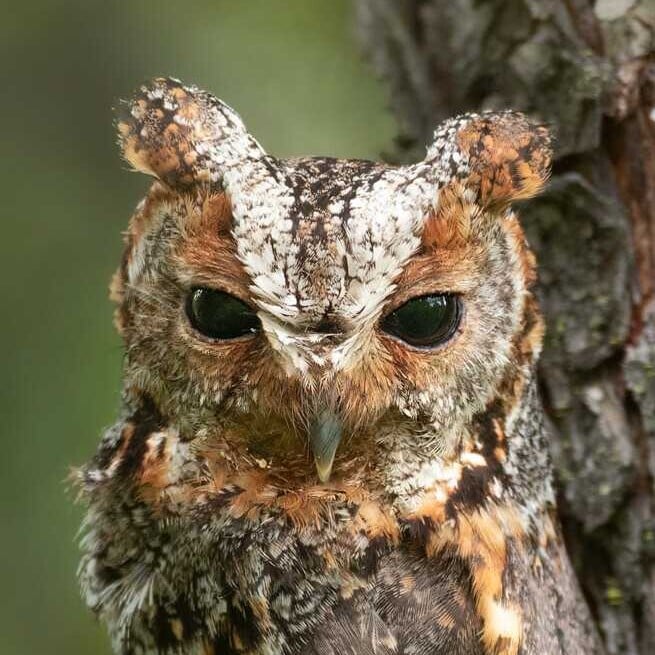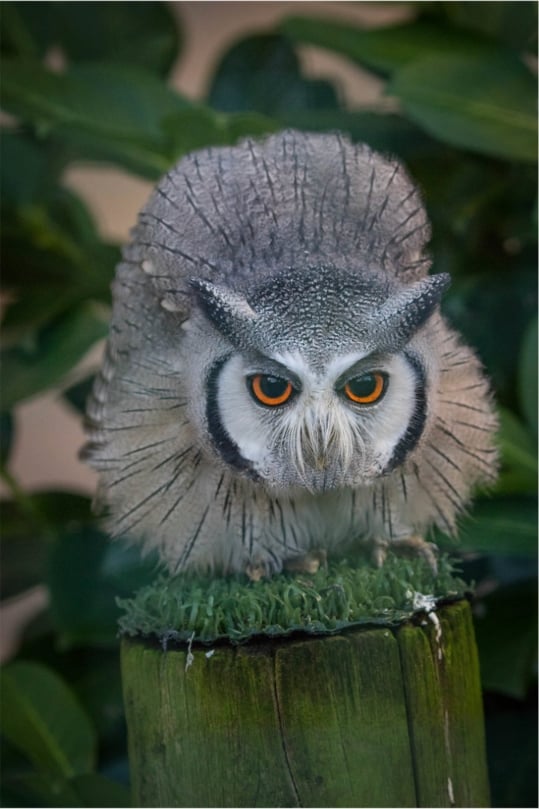I was looking for owl articles today and came across an…interesting…habit of Burrowing Owls.
Scientists noticed the owls collecting various things, but one of those things they were collecting was animal poo. They don’t think the owls understand the cause and effect nature of what they’re doing, but the end result is the waste collecting owls get rewarded with a tenfold increase in “tasty” dung beetles.
No one seems to think this is purely intentional, and the articles had clickbait headlines suggesting tool use, as for now, it seems the scientists see this as more of a behavior that brings a coincidental reward.
From Nature
It is unlikely to win an award for tasteful home decor, but the burrowing owl has a good reason for filling its lair with other animals’ muck. The birds scatter scraps of faeces in and around their burrows to attract dung beetles, one of their favourite foods.
The birds’ ‘bait and wait’ strategy represents a form of tool use, say Douglas Levey of the University of Florida in Gainesville and his colleagues, who made the discovery. Although dung might not be everyone’s idea of a useful tool, the fact that the birds gather and arrange it means that it can be defined as such.
Levey and his team observed a group of the owls (Athene cunicularia), which live throughout North and South America, to see whether the presence of dung outside their burrows had any influence on their diet. After removing the dung from all of the burrows, the researchers placed fresh faeces in front of some of them and left the rest bare.
After four days, the team examined the debris in and around the nests for tell-tale fragments of beetle carcass. As they report in this week’s Nature, owls with dung outside their homes feasted on ten times more dung beetles than those without.
The owls tend to collect dung produced by local mammals, which can be anything from horses and cows to cats, dogs or even antelope, says Levey. But the fact that they use faeces as bait does not necessarily mean they are consciously plotting to catch beetles. “A lot of people have an image of owls as wise, but I do not think the owls are aware of what they are doing,” he says.
A lot of people have an image of owls as wise, but I don’t think the owls are aware of what they’re doing Douglas Levey , University of Florida in Gainesville
The behaviour probably evolved to benefit the owls without them knowing why, agrees Bernd Heinrich, an expert on bird tool-use at the University of Vermont in Burlington. “The acts of putting down the dung and getting the beetles are probably too far apart in time for the owls to reason it out,” he argues.
Indeed, Levey suspects that the behaviour may have arisen for some other reason, such as to disguise the smell of chicks or to create an impressive visual display to entice females. “I don’t think dung beetles are the whole story,” he says.
The owls are notorious collectors of junk, including aluminium cans, scraps of carpet and even animals killed on the roads, such as toads. Perhaps dung started out as just another collectable, and the habit was reinforced by the fact that it also attracts food, Levey speculates.
Some more info from a BBC News article:
Levey says that “pretty much every burrow contains dung” but “if you remove the dung, at least in the spring they will replace it”.
He added this suggested the dung was more than an incidental accumulation of debris.
“Maybe there’s something about the dung itself. If you remove pieces of carpet or aluminium foil they won’t replace it,” Professor Levey told BBC News Online.
Researchers constructed their experiment by clearing all the nest entrances of debris, then one owl colony had a typical littering of dung applied whilst the other was left bare. After four days each entrance was again completely cleared and the situation was reversed.
Analysis of the owls’ waste clearly showed that when dung was present, the owls feasted on 10 times more dung beetles. As Levey says, “this experiment demonstrates that tool use makes a difference to a wild animal”.
Although it may be tempting to conclude the owls are clever enough to devise this trap, Levey explained: “I don’t believe these burrowing animals are aware of the link between the dung they bring in and the beetles they catch”.
Instead, the baiting may simply have evolved, as owls who happened to collect more dung had a better diet and therefore bred more successfully.


I know that other birds use small fish as bait to catch larger fish, so they’re smart enough to do that.
Ok, but do we have any way of testing this? “Probably” not something the owls understand seems to be quite hand-wavey.
That wasn’t in the scope of the study! 😆
I don’t know how they’d really test it. There has to be a delay to the beetles, or the owls wouldn’t have to poo farm to begin with.
It does leave a person wanting more, but while they can’t say it’s intentional, they at least showed it wasn’t random.